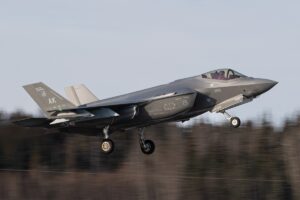
The F-35 program has lost track of millions of dollars in spare parts held at more than 50 domestic and international non-prime contractor sites, according to a new Government Accountability Office (GAO) report. The F-35 Joint Program Office (JPO) said in August 2021 that it was on track to establish an Accountable Property System of Record (APSR) for the tracking of such parts by the end of last year, yet the new GAO report suggests that the work to populate…














